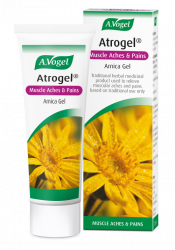What kind of joint pain are we dealing with here?
The joint pain under scrutiny isn’t injury-induced bumps, bruises and strains, but rather arthritic conditions. Rheumatoid arthritis is a long-term condition which affects around 400,000 people in the UK alone. It is an autoimmune disease in which the immune system begins to attack the healthy cells that line the joints, resulting in pain and inflammation.
Psoriatic arthritis is less common, and occurs in approximately two fifths of people who have the skin condition psoriasis. Again, it is thought to be an autoimmune condition, though the reason for the immune system to react in this way is unknown.
Researchers think that the bacteria in our digestive tract may affect both of these conditions.
On the hunt for a culprit
A definitive cause of rheumatoid and psoriatic arthritis has long been sought after, but as yet no one culprit has been found. Now, however, studies carried out at New York University have investigated the role that the bacteria that lives in our intestines plays in relation to our joints.
Our bodies host up to three pounds of ‘good’ intestinal bacteria, of hundreds of thousands of different species. These bacteria are vital for our survival, helping to break down and absorb food, repressing growth of ‘bad’ bacteria. These bacteria also help the immune system to identify and fight dangerous pathogens. It is this latter function that highlights a link between these arthritic conditions and our gut.
What have these studies found?
One study examined how a particular bacterium called Prevotella copri affects rheumatoid arthritis, while another examined the diversity and abundance of gut bacteria and how it is linked with psoriatic arthritis.
The study identified a strong correlation between people who had rheumatoid arthritis and high numbers of P. copri. Also of interest was that the more abundant P. copri was, the less abundant other groups of ‘good’ bacteria were in the gut, increasing susceptibility to non-contagious diseases such as arthritis.
The study examining psoriatic arthritis did not examine a particular bacteria type but instead focused on the range of different types of bacteria in the gut. It was realised that a limited range of gut bacteria was linked with symptoms of psoriatic arthritis.
How is this going to change the treatment of arthritis?
At the moment, because the causes of rheumatoid and psoriatic arthritis are not fully understood, treatment has focused on relieving symptoms. However, with this new discovery that gut bacteria and the immune system are linked, treatments may be able to turn around and tackle the root of the problem, which would ultimately be more effective in treating the arthritis. It may be some time, however, before treatments of this nature will be available.
Why has the bacterial balance in our digestive system altered?
Autoimmune conditions such as arthritis are on the rise, and so far a good understanding of why this is has not been fully realised. However, with this research suggesting that the condition can be traced to differing levels of bacteria in the gut, then it seems logical that the general trend of gut flora is changing throughout the population.
Scientists investigating these changes have identified several reasons why this may have occurred in recent years, and most notable among them is the increased use of antibiotics which often leads to the loss of bacteria in the gut. One study also highlights how smoking and coffee drinking affect the abundance of digestive bacteria, and combined with an ever-changing diet, this has a dramatic impact on our digestive system.
Are there herbal remedies to help?
Currently, the most effective treatments for arthritis focus on reducing the symptoms of joint pain. For example, A.Vogel’s Atrosan Devil’s Claw tablets is a traditional herbal remedy designed to reduce symptoms of joint pain.
Additionally, though there is yet much research to go into the link between gut bacteria and arthritis, it never does any harm to give your digestive system a helping hand. Try Molkosan® Original which acts like a prebiotic as it is rich in L+ lactic acid which helps to encourage the growth of good gut bacteria. In addition, a daily probiotic such as Optibac's 'for every day' will increase the numbers of good bacteria in your gut.








